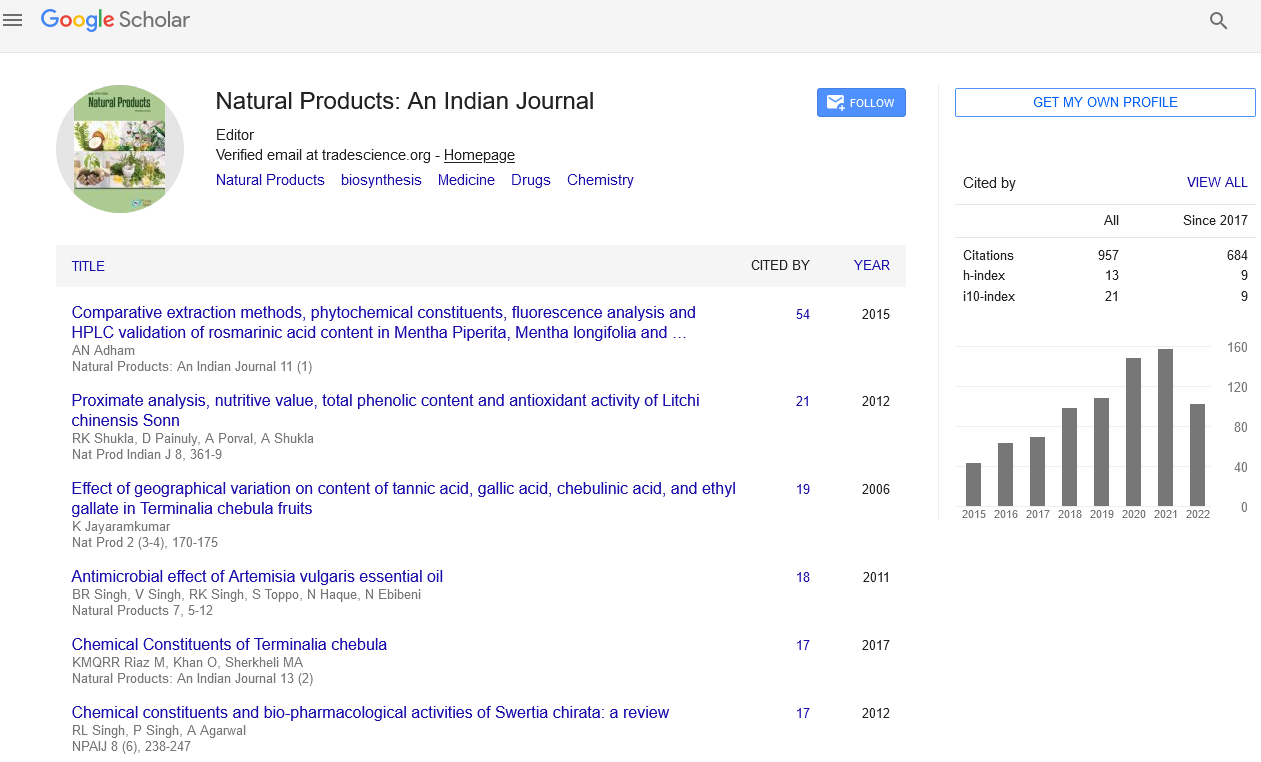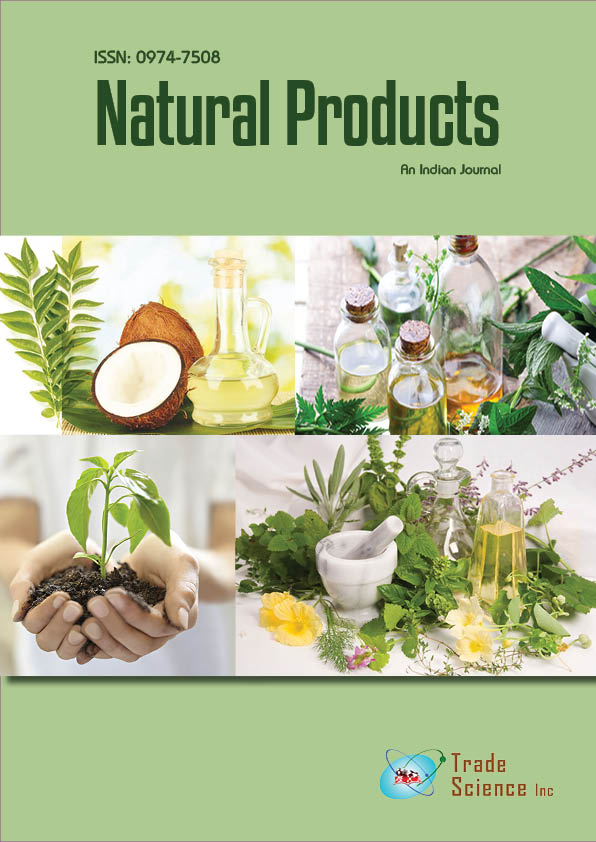Editorial
, Volume: 13( 2)Undergraduate Students’ Class and Laboratory Teaching
- *Correspondence:
- Banik BK, Community Health Systems of South Texas, 3135 S. Sugar Road, Edinburg, Texas 78539, USA, Tel: 956-665-8741; E-mail: bimalbanik10@gmail.com
Received: August 25, 2017; Accepted: September 28, 2017; Published: October 03, 2017
Citation: Banik BK. Undergraduate Students’ Class and Laboratory Teaching. Nat Prod Ind J. 2017;13(2):e001.
Abstract
Teaching and mentoring undergraduates is a crucial responsibility for teachers. An instructor teaches undergraduates using numerous methods. The main target of the teaching is effective learning by the students. The author has identified a few new attractive methods which prove to be useful for teaching and mentoring undergraduates in class and laboratories.
Keywords
Laboratory Teaching; Undergraduate; Mentoring
Introduction
Teaching and mentoring undergraduates in class and laboratories is not easy, as many believe. There are significant challenges and learning associated with these types of responsibilities. Effective undergraduate teaching does not necessarily depend on the teacher’s experience and background. A serious observation, method, dedication, and variation are the most important keys for teaching undergraduates in class. However, teaching undergraduate students in a laboratory is somewhat related to the creativity of the teacher. Teachers must have new ideas in research to direct students at the laboratories.
Class Teaching
It is obvious that teaching students in a class is not the same as scientific seminars and laboratory classes. Some experts believe that teachers are not able to know whether their students understand the subjects they taught. However, there are a number of ways a teacher can identify whether students follow their lectures. To do this, a teacher must bring different methods of teaching. It is not necessary only to deliver class lectures to the students to convince the students and administrators that the course materials are completed on time. To make an effective plan and to visualize the contents of the course are definitely important targets, regardless of the teaching method. Many teachers and administrators believe students can perform well from books in their undergraduate study. However, a systematic study confirmed that students do much better if the course materials are prepared by a teacher and given to the students ahead of time [1]. One should not feel that the advance class materials are a summary of the subjects and therefore, too short and they do not give the students enough information on the subject. The course subjects were given to the students in a comprehensive form, selecting pertinent examples and mechanisms in detail. My own contribution in this area had been experimentally verified with several hundred undergraduates and the outcome looked very fascinating. Most of the students liked the concept of having advance class notes. Many students who previously failed in the class performed much better when advance class notes were provided. Interestingly, advance class notes had little effects on the students who consistently performed well. However, these groups of students had expressed the ideas of having advance notes during class discussions and examination purposes as well. Clearly 100% of the students liked advance class notes that were prepared using more than sufficient information with illustrative examples.
Many outstanding teachers liked to prepare themselves for the class regardless of whether they are new or experienced. This practice helped the teachers to discuss the subjects well with the students. Surprisingly, many new and experienced teachers had the habit of not taking sufficient preparation prior to the teaching in the class. They felt it is not necessary to take any preparation because they would teach undergraduates and this is a very simple job. Perhaps, this philosophy among many new and experienced teachers had destroyed the charm of students’ preparation for future generations. The most important goal of a teacher is to know the subject thoroughly. Although it is important to prepare successful teachers, it is unlikely to prepare them adequately without giving suitable training by expert peers. Many new teachers may not even know whether the students are following the subjects properly even though adequate facilities of the learning materials exist in the class room.
In many examples, it helped to conduct group learning and cooperative learning method in the class to create interests among students in the subject matter. This method worked well if the class has approximately 50 students. It was possible to divide these 50 students among 10 groups. A teacher asked the same questions to each individual group and allowed the students sufficient time to answer them. Each group was eligible to come to the podium next to the board and read/write the answers of the questions that were asked. The instructor helped the students with the correct answers with explanations. This process made the class more enjoyable and students became free from tension. In addition, instructors were unable to teach very fast. Although it looked like a slow teaching process, it helped students to capture the ideas so well that they may not need a long time to solve similar subjects in the future. The cooperation among the students became better. It had been found that students become smarter when they come to the board for discussions with other students and instructor. Due to the students’ participation, the whole class room became an ideal place to discuss the subjects freely. Teacher-student relationships can also be improved by this process when teachers and students do not have time to connect. As a result of group learning and cooperative learning methods, teacher and students come closer and can exchange the concepts of the subjects better.
Despite the use of many modern tools for teaching, including power point instruction to the class students, it had been found that most of the students still prefer teaching with chalk and board [2]. Clearly, students learnt better when chalk and board is used in the instruction purposes. Probably, teachers spent more time in writing steps more clearly in the board and go slowly compared to power point presentations. In addition, the use of chalk and board helped the teacher to explain a particular topic in different ways.
In continuation of my efforts to make teaching a rewarding experience to the students, presentation examinations were adopted as a part of the examination process and students’ evaluation. Clearly students liked presentation examination much better than conventional examinations [3]. However, this was a time-consuming process. Teacher needed to spend additional time with the students to implement presentation examinations. This type of examination helped many students to pursue research while they are undergraduates. Clearly students learn a lot more and start to think about what is ahead of them in the future. The teacher needed to know the subjects very thoroughly if presentation examinations are selected as the choice for students’ evaluation and grading.
At the end of the semester, all students in general evaluate the teacher with comments and grade them in many areas. The teacher should read the comments and evaluations by the students to improve the deficiency that they may have. Some students also write about learning outcomes from a course to the teacher or the administrators. Students can actually help many teachers to teach well and more effectively if they write comments without bias. It is advised to the students not to write false statements. The junior teachers may improve their teaching by asking an experienced and excellent teacher to follow their teaching in the class. To choose a senior and outstanding teacher as the observer helps a relatively inexperienced teacher perform well. This opportunity should not affect the relationships among the visiting teacher and the teacher who seeks assistance.
Laboratory Teaching
Undergraduates performed known experiments as a part of their lab courses. If an undergraduate was exposed to an experiment that was much more complex and was related to their class materials with application, they performed lab work with better care. After a series of experimentations, I had identified a few suitable experiments that are performed by undergraduates as a part of their course requirements within the allocated time [4-6]. Most of the students became highly energetic during these types of experiments. Some of these results obtained by undergraduates are published in chemical journals. There is no doubt that college students who are the co-authors of publications/presentation are the front runner in the competition for attractive higher degrees. To implement this type of process, many funding societies have started undergraduate research programs many years ago. Nevertheless, a major part of the students in the world remain unexposed in this promising area, which could expose them to a research career. Students who had participated in conducting unknown lab experiments become interested in research, plan, presentation, scientific database search, and analysis of results. Because of outstanding teaching, it was possible for the author to attract several hundred students at his research laboratory. Subsequently, these students have become co-authors in publications in journals. Many of them have presented papers in national conferences.
Conclusion
High quality undergraduate teaching and mentoring in class is necessary to prepare researchers for the future. These are also helpful to create students with outstanding qualifications for their career development.
Acknowledgment
The author is grateful to Stevens Institute of Technology, University of Texas M. D. Anderson Cancer Center, University of Texas-Pan American, and Community Health Systems of South Texas.
References
- Garcia I, Banik BK. Influence of class notes on the academic performance of undergraduates organic chemistry students. Chem Edu. 2008;13:257-9.
- Chandra S, Yadav RN, Banik BK. Conventional Teaching Versus Power Point Teaching Method. Chemistry: Bulgarian Journal of Science Education. 2014;23:496-9.
- Banik BK, Yadav RN, Chandra S. Non-Traditional Examination: A Study to Improve Academic and Research Performance of Undergraduate Organic Chemistry Students. Heterocyclic Letters. 2017;7:231-7.
- Banik BK. Undergraduate and High School Students Research Mentoring. Heterocyclic Letters. 2017.
- Chandra S, Yadav RN, Lareeb L, et al. Synthesis of 3-unsubstituted β-lactams using radical reactions. Chem Edu. 2015;20:4-5.
- Banik BK, Garza R. Iodine-catalyzed facile deprotection of acetal and ketal in acetone. Chem Edu. 2007;12:75-6.

